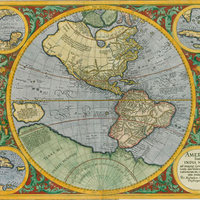
Daniel Rojas Pachas
Daniel Rojas Pachas (Lima, 1983) Escritor, académico y editor. Actualmente reside en Bélgica dedicado a la escritura y a la investigación literaria. Rojas Pachas está a cargo de la dirección del sello editorial Cinosargo, editorial con más de trece años de trayectoria y un catálogo de 150 títulos. Ha publicado los poemarios Gramma, Carne, Soma, Cristo Barroco, Allá fuera esta ese lugar que le dio forma a mi habla y Mecanismo destinado al simulacro y las novelas Tremor, Random, Video Killed the radio star y Rancor. Sus textos están incluidos en varias antologías –impresas y virtuales– de poesía, ensayo y narrativa chilena y Latinoamericana. Más información en su blog www.danielrojaspachas.com en www.cinosargoediciones.com o en https://es.wikipedia.org/wiki/Daniel_Rojas
Daniel Rojas Pachas (Lima, 1983) Writer, academic and editor. He currently lives in Belgium, where he is dedicated to writing and working at KU Lueven on his doctoral research entitled Lihn and Bolaño: meta-criticism, rhetoric and power in two trilogies of contemporary Latin American narrative. Rojas Pachas is in charge of the direction of the publishing house Cinosargo, a publishing house with more than thirteen years of experience and a catalog of 150 titles. He has published the poetry collections Gramma, Carne, Soma, Cristo Barroco, Allá fuera esta ese lugar que le dio forma a mi habla and Mecanismo destinado al simulacro and the novels Tremor, Random, Video Killed the radio star and Rancor. His texts are included in several anthologies - printed and virtual - of Chilean and Latin American poetry, essays and narrative.
Daniel Rojas Pachas (Lima, 1983) Writer, academic and editor. He currently lives in Belgium, where he is dedicated to writing and working at KU Lueven on his doctoral research entitled Lihn and Bolaño: meta-criticism, rhetoric and power in two trilogies of contemporary Latin American narrative. Rojas Pachas is in charge of the direction of the publishing house Cinosargo, a publishing house with more than thirteen years of experience and a catalog of 150 titles. He has published the poetry collections Gramma, Carne, Soma, Cristo Barroco, Allá fuera esta ese lugar que le dio forma a mi habla and Mecanismo destinado al simulacro and the novels Tremor, Random, Video Killed the radio star and Rancor. His texts are included in several anthologies - printed and virtual - of Chilean and Latin American poetry, essays and narrative.
less
Related Authors
Cristián Gómez Olivares
Case Western Reserve University
Francisca García
Universidad Metropolitana de Ciencias de la Educacion
Tiziana Panizza
Universidad de Chile
Marcelo Sanhueza
Universidad de Chile
Victor Veloso Luarte
Universidad de Santiago de Chile








Uploads
Papers by Daniel Rojas Pachas
The present reading of The Crystal Orchestra (1976) focuses on characterizing the poetics of the abigarrated and its resources. The hyperrethoric, the kitsch and the conceptual humor are textual strategies that show the transgressive and exploratory character of the trilogy of novels that Enrique Lihn dedicated to the rhetoric of power. The narrative voice of Lihn exhibits a sensitivity characterized by the piled up and inharmonic, a multiplicity of colors and heterogeneous materials united without concert. Lihn builds a speech marked by political violence, censorship and self-censorship. In the novel, the author parodies not only politicians and authority figures, but also the cultural field of the moment and its pseudo art. This work exposes an experimental and polyphonic narrative, capable of generating atmospheres in which the detritus appears as the maximum realization of the Latin American intellect once this was dominated by the dictatorship and a public trained by monuments to bad taste.
The present reading of The Crystal Orchestra (1976) focuses on characterizing the poetics of the abigarrated and its resources. The hyperrethoric, the kitsch and the conceptual humor are textual strategies that show the transgressive and exploratory character of the trilogy of novels that Enrique Lihn dedicated to the rhetoric of power. The narrative voice of Lihn exhibits a sensitivity characterized by the piled up and inharmonic, a multiplicity of colors and heterogeneous materials united without concert. Lihn builds a speech marked by political violence, censorship and self-censorship. In the novel, the author parodies not only politicians and authority figures, but also the cultural field of the moment and its pseudo art. This work exposes an experimental and polyphonic narrative, capable of generating atmospheres in which the detritus appears as the maximum realization of the Latin American intellect once this was dominated by the dictatorship and a public trained by monuments to bad taste.